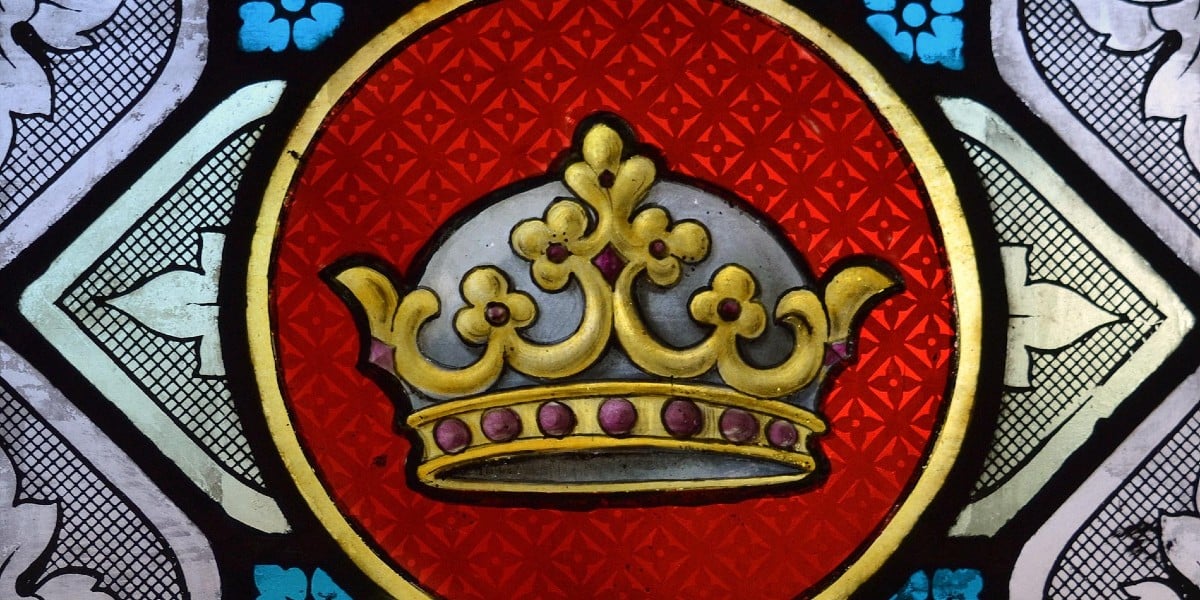Regina Caeli – Queen of Heaven, Rejoice!
The Regina Caeli, Latin for “Queen of Heaven,” is a hymn and prayer ...

St. Clare is remembered in the liturgy of the Church on August 11. Inspired by her neighbor, Francis of Assisi and under his direction, she founded an order of nuns commonly called the “Poor Clares.” Though she lived a cloistered, contemplative life in the Convent of San Damiano, Clare’s holiness and wisdom was so renowned that in her lifetime she was sought out for advice even from the Pope himself. In a letter to one of her nuns, she here writes of the beauty of Christ, the bridegroom and the mirror without cloud.
Happy indeed is she who is granted a place at the divine banquet, for she may cling with her inmost heart to him whose beauty eternally awes the blessed hosts of heaven; to him whose love inspires love, whose contemplation refreshes, whose generosity satisfies, whose gentleness delights, whose memory shines sweetly as the dawn; to him whose fragrance revives the dead, and whose glorious vision will bless all the citizens of that heavenly Jerusalem. For his is the splendor of eternal glory, the brightness of eternal light, and the mirror without cloud.
Queen and bride of Jesus Christ, look into that mirror daily and study well your reflection, that you may adorn yourself, mind and body, with an enveloping garment of every virtue, and thus find yourself attired in flowers and gowns befitting the daughter and most chaste bride of the king on high. In this mirror blessed poverty, holy humility and ineffable love are also reflected. With the grace of God the whole mirror will be your source of contemplation.
![]()
Featured/above image by an unknown artist. Public domain.
Behold, I say, the birth of this mirror. Behold his poverty even as he was laid in the manger and wrapped in swaddling clothes. What wondrous humility, what marvelous poverty! The King of angels, the Lord of heaven and earth resting in a manger!
Look more deeply into the mirror and meditate on his humility, or simply on his poverty. Behold the many labors and sufferings he endured to redeem the human race. Then, in the depths of this very mirror, ponder his unspeakable love which caused him to suffer on the wood of the cross and to endure the most shameful kind of death. The mirror himself, from his position on the cross, warned passersby to weigh carefully this act, as he said: All of you who pass by this way, behold and see if there is any sorrow like mine. Let us answer his cries and lamentations with one voice and one spirit; I will be mindful and remember, and my soul will be consumed within me. In this way, queen of the king of heaven, your love will burn with an ever brighter flame.
Consider also his indescribable delights, his unending riches and honors, and sigh for what is beyond your love and heart’s content as you cry out: Draw me on! We will run after you in the perfume of your ointment, heavenly spouse. Let me run and not faint until you lead me into your wine cellar; your left hand rests under my head, your right arm joyfully embraces me, and you kiss me with the sweet kiss of your lips. As you rest in this state of contemplation, remember your poor mother and know that I have indelibly written your happy memory into my heart, for you are dearer to me than all the others.
This reading is an excerpt from a letter from St. Clare of Assisi to Blessed Agnes of Prague (Edit . I. Omaechevarria, Escritos de Santa Clara, Madrid 1970, pp. 339-341). It appears in the Roman Office ofReadings for the Feast of St. Clare on August 11.
For an inspiring and carefully researched work of historical fiction on the life of St. Clare, see Bret Thoman’s St. Clare: Light from the Cloister.
For a podcast by Dr. Italy about St. Clare, listen here.
Banner image by an unknown artist. Public domain.
No Comments